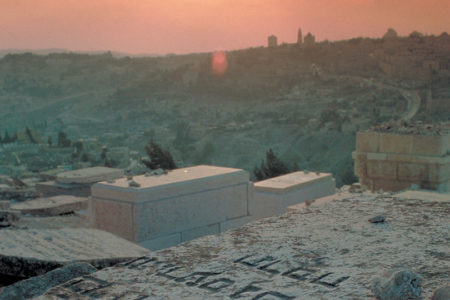Jewish Music: Capturing the Heart of a People Part One
As an art form, music is multifunctional. It can tell stories, teach, record great events, inspire people to action, vent human emotion, or just be enjoyed. Stated simply, music can capture the heart of a people. It is no wonder that universities offer courses that examine the music and songs of various nationalities.
Most people are familiar with names like Yitzhak Perlman, Yasha Heifitz, Paul Simon and Art Garfunkel, Al Jolson, Victor Borge, and Isaac Stern. They are but a few of the many talented Jewish people who have created listening pleasure for millions across the globe. In fact, Jewish people have contributed immensely to the field of music in a way that is totally disproportionate to their few numbers in the world.
Yet a distinction must be made between Jewish musicians and Jewish music. Jewish music is a legitimate category in the field of musicology. It has been defined as “that music which is made by Jews, for Jews, as Jews.”1 And a grasp of Jewish music provides a marvelous insight into the history, culture, and customs of the Jewish people.
The foundations of Jewish music are entrenched in the Bible. Jewish music began as sacred music created for and centered on the God of Abraham, Isaac, and Jacob. Much of it was performed around the holy Temple. Later it spread to the synagogues and then mushroomed into a wide variety of expressions, largely due to the scattering of the Jewish people around the world, known as the Diaspora.
Not much is known today about the musical arrangements of biblical music. However, the Bible does name specific, individual musical instruments: “The shophar, or ram’s horn, is the most frequently mentioned biblical instrument, and the only ancient instrument still in use in the synagogue.”2 Other instruments mentioned include the harp, lyre, flute, tambourine, cymbals, and bells.
The Bible’s chief contribution to helping us understand its music lies in the words it provides for various songs. Inherent in these songs are at least three important characteristics: They were written and performed with great skill, they exhibited purpose, and they enhanced worship.
Skill
It was King David, “the sweet psalmist of Israel” (2 Sam. 23:1) and a skillful musician, who insisted on proficiency for anyone playing music. In Psalm 33:3 he issued this command concerning any new song: “Play skillfully with a loud noise.” It might have been David who chose Chenaniah, the leader of the Levites, because Chenaniah was skillful in ‘song. Chenaniah had the ability to lead by giving instructions concerning a song sung during the procession of the Ark of the Covenant (1 Chr. 15:22).
It was David who organized the musicians into “courses” and instructed the leaders of the Levites to appoint musicians to perform as the Ark of the Covenant was moved from Obed-edom’s home to its proper place in Jerusalem (1 Chr. 15:16). These Levites “were instructed in the songs of the LORD, even all that were skillful” (1 Chr. 25: 7). In all, 288 skillful men sang and/ or played various instruments (1 Chr. 25:7).
It seems that under David’s leadership, good music was the rule rather than the exception. This fact is evidenced in the prophet Ezekiel’s observation that people come to God with the “lovely song of one that hath a pleasant voice, and can play well on an instrument” (Ezek. 33:32). Skillfully played music was a part of Jewish life.
Psalms 120-134 are called the Psalms of Ascents, or songs of degrees. Differing views exist as to when these psalms were sung. The first view holds that Jewish people sang them as they ascended up to Jerusalem for required worship there on Passover, Pentecost, and Tabernacles (Dt. 16:16). A second view states that they were sung while worshipers stood on the fifteen steps leading to the Court of Israel in the Temple.3 Regardless of which view is correct, these “songs” were written and performed with the skill and precision needed to provide the proper rhythm of the ascent.
There are seventy-one instances where the word selah is used. The word selah was not actually spoken but was used as “a musical notation signaling an interlude or change of musical accompaniment.”4 Fifty-five of the psalms employ a chief musician or choir director, suggesting “that a collection of psalms existed for the choir director, possibly for use on special occasions. “5 Even a casual Bible reader can see that music was important enough to be performed skillfully.
Purpose
In the Torah, God commanded Moses to write a song and teach it to the children of Israel (Dt. 31:19). The song’s purpose, found in Deuteronomy 32, was to remind the Israelites of the unique place they hold under the watchful eye of the God of Abraham, Isaac, and Jacob. It also serves as a tool to teach Jewish history to future generations.
In addition to songs of remembrance and instruction, songs in the Bible were written for other purposes. They were sung to celebrate great victories, such as the one recorded in Exodus 15 and sung by Moses, Miriam, and the children of Israel. The song of Deborah and Barak, recorded in Judges 5, describes the Israelite victory over the army of Jabin.
“Such heroic ballads,” said one scholar, “were probably set down in the lost ‘Book of the Wars of the Lord’ (Num. 21:14) and the ‘Book of Jashar’ (Josh. 10:13; 2 Sam. 1:18), and were no doubt sung by itinerant minstrels and bards.”6 The song recorded in 2 Samuel 1:19–27 expresses David’s great sadness as he mourns the loss of Saul and his beloved friend, Jonathan.
Excessive drinking is denounced in Psalm 69:12. Psalm 30 was written and performed for the dedication of the house of David. Love songs are found throughout the poetic books of the Holy Scriptures—1,005 of them written by Solomon alone (1 Ki. 4:32). Many songs were sung about the great city of Zion. Psalm 137 explains that these songs became hard to sing. An unnamed composer wrote the following:
By the rivers of Babylon, there we sat down, yea, we wept, when we remembered Zion. We hung our harps upon the willows in the midst thereof. For there they that carried us away captive required of us a song; and they that wasted us required of us mirth, saying, Sing us one of the songs of Zion. How shall we sing the LORD’S song in a foreign land? (vv. 1–4).
To ensure that Israel’s beloved Jerusalem would be remembered, he continued, “If I forget thee, O Jerusalem, let my right hand forget her cunning. If I do not remember thee, let my tongue cleave to the roof of my mouth, if I prefer not Jerusalem above my chief joy” (vv. 5–6). We know that life’s situations can turn songs of joy into songs of laments (Amos 8:10).
Hallelujah songs were written simply to praise the Lord. No better example of this purpose exists than Psalm 150, which tells us where to praise Him, how to praise Him, who should praise Him, and what to praise Him for.
Worship
Worship is as much an attitude as it is an action. The Hebrew word shachah is translated “to bow down,” “to depress,” and “to prostrate oneself.” This is a posture long associated with the Jewish people. When implemented, it communicates reverence as well as the homage due to the Sovereign One of the universe. Many songs in Jewish Scripture capture that attitude. First Chronicles 16:37–43 tells us how the Levites behaved before the Ark of the Covenant. They offered continual burnt offerings and expressions of thanksgiving. Musical instruments played the “songs of God” (v. 42; cf. 2 Chr. 7:6; 29:25). How amazing that must have been to behold!
The hallelujah psalms (the word psalm comes from the Greek translation of the Hebrew word mizmor7) are songs accompanied by instruments used to shower the Lord with musical praise. First Chronicles 6:31–32 records that David set people “over the service of song in the house of the LORD, after the ark had rest. And they ministered before the dwelling place of the tabernacle of the congregation with singing.”
When Nehemiah led the people to rebuild the walls of Jerusalem, “all Israel, in the days of Zerubbabel, and in the days of Nehemiah, gave the portions of the singers and the porters, every day its portion; and they sanctified holy things unto the Levites, and the Levites sanctified them unto the children of Aaron”(Neh. 12:47). This was music arranged with worship in mind.
This kind of Jewish music is the basis for heavenly music. We find such music described in the last book of the New Testament. In Revelation 5:9 we read, “And they sang a new song, saying, Thou art worthy to take the scroll, and to open its seals; for thou wast slain, and hast redeemed us to God by thy blood out of every kindred, and tongue, and people, and nation.” According to verse 8, this song was sung to the accompaniment of harps.
A great deal of controversy embroils the evangelical community today about the type of music we use in worship, the way it is performed, and the volume at which it is played.
I do not intend to address that topic here. It is, however a valuable exercise to examine truths about biblical music directly from the pages of Scripture. There we see that heaven will be playing some of Earth’s songs. (See Revelation 15:3, Exodus 15, and Deuteronomy 32.)
With that in mind, we should follow the Jewish, biblical pattern. As with the children of Israel, our music ministries should be performed with great skill and to the best of the abilities God has given us. Our music should exhibit purpose, containing a real message. Finally, our music should enhance worship by directing those who sing it or hear it to the throne of God. After all, that is something we will be doing for all eternity.
ENDNOTES
- “Music,” Encyclopaedia Judaica CD-Rom Edition. 1997.
- “Music,” P. J. Achtemeier Harper’s Bible Dictionary, Harper & Row, San Francisco, 1985, p. 669. (published in electronic form by Logos Research Systems, 1996).
- The New Scofield Study Bible, Oxford University Press, New York, 1967, p. 664. n.
- “Introduction to the Book of Psalms,” Ryrie Study Bible, Moody Press, Chicago, 1976, p. 798.
- Ibid.
- Achtemeier, p. 667.
- Ibid., p. 671.






